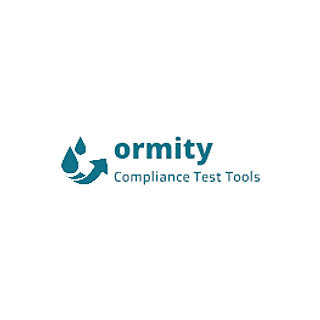Quality Compliance Testing Equipment for Safety Standards
- Ormity Inc.
- Nov 16, 2025
- 4 min read
In today's world, ensuring safety and compliance is not just a regulatory requirement but a fundamental aspect of business operations. Whether you are in manufacturing, construction, or any other industry, the right quality compliance testing equipment can make a significant difference in meeting safety standards. This blog post will explore various types of testing equipment, their importance, and how they contribute to maintaining safety standards.

Understanding Quality Compliance Testing
Quality compliance testing refers to the process of evaluating products, materials, or systems to ensure they meet specific safety and quality standards. This testing is crucial for several reasons:
Regulatory Compliance: Many industries are governed by strict regulations that require compliance testing to ensure safety.
Risk Management: Identifying potential hazards before they lead to accidents or failures can save lives and reduce liability.
Quality Assurance: Regular testing helps maintain product quality, ensuring customer satisfaction and brand reputation.
Types of Quality Compliance Testing Equipment
There are various types of quality compliance testing equipment available, each designed for specific applications. Here are some of the most common types:
1. Mechanical Testing Equipment
Mechanical testing equipment is used to evaluate the physical properties of materials. This includes:
Tensile Testers: These machines measure the tensile strength of materials by pulling them until they break.
Hardness Testers: These devices assess the hardness of materials, which is crucial for applications where wear resistance is important.
Impact Testers: These machines evaluate a material's toughness by measuring its ability to absorb energy during an impact.
2. Electrical Testing Equipment
Electrical testing equipment is essential for ensuring the safety and performance of electrical devices. Key types include:
Insulation Resistance Testers: These devices measure the insulation resistance of electrical equipment to prevent electrical shocks.
Multimeters: These versatile tools measure voltage, current, and resistance, making them essential for troubleshooting electrical issues.
Ground Resistance Testers: These devices ensure that grounding systems are effective, which is critical for electrical safety.
3. Environmental Testing Equipment
Environmental testing equipment evaluates how products perform under various environmental conditions. This includes:
Temperature Chambers: These simulate extreme temperatures to test product durability.
Humidity Chambers: These assess how products react to high humidity levels, which is important for electronics and materials.
Corrosion Testers: These devices evaluate a material's resistance to corrosion, which is vital for products exposed to harsh environments.
4. Chemical Testing Equipment
Chemical testing equipment is used to analyze the chemical composition of materials. Important tools include:
Spectrophotometers: These devices measure the intensity of light absorbed by a sample, helping identify its chemical makeup.
pH Meters: These instruments measure the acidity or alkalinity of a solution, which is crucial in many industries.
Chromatography Systems: These are used to separate and analyze compounds in a mixture, providing detailed chemical information.
Importance of Quality Compliance Testing Equipment
Investing in quality compliance testing equipment is essential for several reasons:
Enhancing Safety
Safety is paramount in any industry. By using the right testing equipment, businesses can identify potential hazards and mitigate risks before they lead to accidents. For example, a construction company that regularly tests the tensile strength of its materials can prevent structural failures that could endanger lives.
Improving Product Quality
Quality compliance testing ensures that products meet industry standards and customer expectations. Regular testing can help identify defects early in the production process, reducing waste and improving overall product quality. For instance, a manufacturer that uses hardness testers can ensure that its products are durable and long-lasting.
Building Trust and Reputation
Companies that prioritize safety and quality compliance build trust with their customers. By demonstrating a commitment to safety standards, businesses can enhance their reputation and attract more clients. This is particularly important in industries where safety is a critical concern, such as healthcare and aerospace.
Selecting the Right Testing Equipment
Choosing the right quality compliance testing equipment can be challenging. Here are some factors to consider:
1. Industry Standards
Different industries have specific standards that testing equipment must meet. Familiarize yourself with the relevant regulations in your field to ensure compliance.
2. Equipment Calibration
Regular calibration of testing equipment is essential for accurate results. Ensure that the equipment you choose can be easily calibrated and maintained.
3. User Training
Proper training for personnel using the testing equipment is crucial. Invest in training programs to ensure that your team understands how to operate the equipment safely and effectively.
4. Budget Considerations
Quality compliance testing equipment can be a significant investment. Consider your budget and explore options for leasing or purchasing used equipment if necessary.
Case Studies: Successful Implementation of Testing Equipment
Case Study 1: Aerospace Industry
A leading aerospace manufacturer implemented advanced mechanical testing equipment to evaluate the tensile strength of its materials. By conducting regular tests, the company identified weaknesses in its materials early in the production process, leading to a 30% reduction in material failures and enhanced safety for its aircraft.
Case Study 2: Food Industry
A food processing company invested in chemical testing equipment to analyze the pH levels of its products. By ensuring that all products met the required pH standards, the company improved food safety and reduced the risk of contamination, leading to increased consumer trust and sales.
Future Trends in Quality Compliance Testing
As technology advances, the field of quality compliance testing is evolving. Here are some trends to watch:
Automation
Automated testing equipment is becoming more prevalent, allowing for faster and more accurate testing. This technology can reduce human error and increase efficiency in testing processes.
Data Analytics
The integration of data analytics into testing equipment allows for better analysis of test results. Companies can use this data to identify trends, improve processes, and enhance product quality.
Remote Testing
With the rise of remote work and digital solutions, remote testing capabilities are becoming more common. This allows companies to conduct tests from various locations, increasing flexibility and accessibility.
Conclusion
Quality compliance testing equipment is essential for ensuring safety and meeting industry standards. By investing in the right tools and processes, businesses can enhance safety, improve product quality, and build trust with their customers. As technology continues to evolve, staying informed about the latest trends and advancements in testing equipment will be crucial for maintaining compliance and ensuring safety in the workplace.
Take the next step in your safety journey by evaluating your current testing equipment and considering upgrades or new investments that align with your industry standards.





Comments